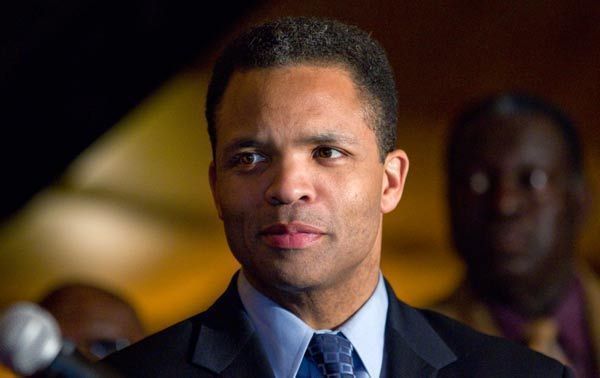In the 30th chapter of Deuteronomy, Moses speaks in the voice of God and offers the Hebrew community a choice:
“I have set before you life and death, blessing and cursing: therefore choose life” (verse 19).
This is a wonderfully dramatic passage — on which I’ve heard many good sermons — suggesting that the choice is not only between life and death, but between good and evil, between God and other gods. The choice, even in the midst of the wilderness and uncertainty, should be clear.
Choose life.
For many of us who live with depression conditions, this positing of life and death is not at all like the moment portrayed in the Bible. It’s not a one-time, congregational call to holiness. It’s a place where we stand and have to make difficult decisions. For many of us, it’s a place we’ll revisit more than once in our lifetimes.
I made such a decision when I chose to be hospitalized for my psychiatric health. I knew what lay on one side:
- Time off from work that I would have to explain
- Medical bills for months
- The inability to get life insurance since my “risk” would be higher than that of a chain smoker
- The inability to get health insurance outside of a good job or legal marriage to someone with a good job (in the days before mental health parity laws)
- The stigma that something is wrong with my brain — especially when I make my living off of my brain
- The constant re-telling of my life’s medical and emotional story to strangers at the teaching hospital near me
- The horrid nausea and side effects of new medications
- The knowledge that my health was so far out of my control and management that I needed intense help
And this is the “life” side of the equation.
Yet, with whatever will still lay within me, I chose hospitalization. To choose otherwise at that time would have been choosing death. At my own hands, most likely. In moments of severe pain and ongoing numbness, death is not theoretical. It’s an alluring option. Choosing life was not easy, simple or without cost.
In recent months, there have been increasing reports on Jesse Jackson Jr.’s health. The stories began in June 2012 with indications that Jesse Jackson Jr., the U.S. congressional representative from Illinois’ second district, had taken leave from Washington D.C. to tend to medical issues. Soon the reports mentioned physical and emotional exhaustion. As Jackson’s family — notably his wife and father — maintained privacy about his whereabouts and actual condition, the media grew increasingly demanding about the details of Jackson’s health. Where is he? What exactly is wrong?
When Jackson’s office and family revealed that Jackson was being treated at the Mayo Clinic for bipolar II, the media took this as an opportunity to both educate the public about mental health challenges — even citing other members of Congress who live openly with depressive conditions — and to speculate about the cause of Jackson’s condition. Is it connected to the stress of his position? His previous gastric bypass surgery? The ongoing ethics investigation?
As an African American who lives with a bipolar depressive condition, I’ve eagerly followed the stories. There are so few public figures — especially African American — who live out loud with their mental health challenges. I was hoping that the revelations about Jackson would reduce the stigma and silence around mental health. Especially in July which is Bebe Moore Campbell National Minority Mental Health Awareness Month.
Rather than feeling proud, educated and triumphant, I’ve been riled by most of the reporting in the mainstream media. It’s taken me a while to be able to name what I’ve found most disturbing about these news stories. Here are a couple things:
- Individuals — even elected officials — have the right to privacy about the details of their medical conditions; but the media implied that the public had the “right to know” details about someone’s health that most of us would not want revealed to even our co-workers
- Many stories implied that there was a “cover-up” about Jackson’s medical condition thus negating the fact that many medical conditions are complicated, take time to diagnose, and actually require a measure of rest and privacy so doctors can work
- Every report ended with a notation about the ethics investigation. That move suggested that perhaps Jackson wasn’t really ill, just evasive
- Ongoing media speculation that there is a simple or singular cause to mental health challenges — like stress, gastric bypass surgery, etc.
(For what it’s worth, reporting from the mental health community has been far more gracious. See what Dr. Thema Bryant-Davis has said, and what Dr. John Grohol of PsychCentral.com has said, for two examples.)
In the midst of all this, Jesse Jackson Jr. has released no statement, and his family has said little more than expressions of support and concern.
It’s clear to me that Jackson, his family and his office were not oblivious to what would happen in the media. They have not sacrificed the primary concern of health to how American society responds to psychiatric hospitalization. They seem to be focusing on Jackson’s wellness.
What I see is someone who stood at the juxtaposition of life and death — and chose life. I know it’s not an easy decision, and I’m not a politician. I also know it’s not communal and clear like the way Deuteronomy portrays i. But to choose life in the prospect of death is sacred. It’s one of the holiest acts there is.
(Originally published with Huffington Post here)




